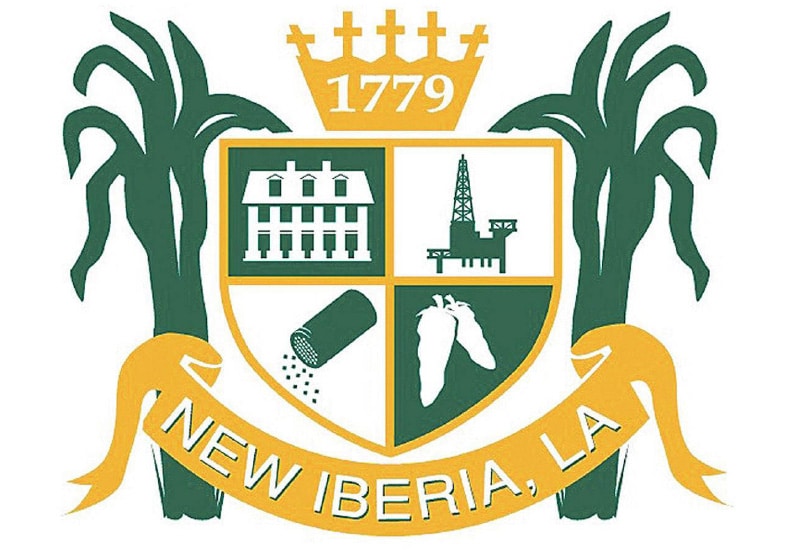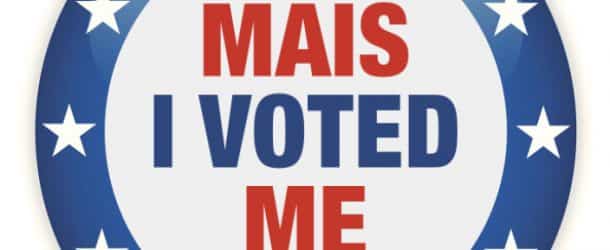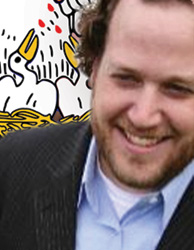Louisiana’s early voting period for this fall’s elections runs until Oct. 5. Voters have become more comfortable with this alternative, as evidenced by an increase in this form of balloting.
Political consultants say this change has moved the schedule for routine political activities up by a month or more in some instances. That, in turn, may mean that voters are increasingly making their decisions known earlier in the process as well.
“As expected, undecided voters are making up their minds quickly ahead of early voting,” said Mary-Patricia Wray, founder of Top Drawer Strategies. “But with negative messages from the top of the ballot on screens and radios everywhere, turnout could be depressed. As candidates make their final pitches to voters, I expect personal, biographical persuasion to re-energize likely voters.”
Secretary of State Kyle Ardoin is encouraging voters to use the state’s smartphone app, GeauxVote Mobile, to find out where to vote early. Voters can get the same information via the department’s Voter Portal by visiting voterportal.sos.la.gov. For further election information, call 225-922-0900.
Political History: From French To Spanish Rule
The first week of October marks the 255th anniversary of France’s decision to officially unload the Louisiana territory onto Spain.
It was a real backroom kind of deal, with French officials keeping the colonists in the dark for two years. When France sent representatives to Louisiana to begin the process in 1762, they found a government they described as “understaffed and corrupt.” The treasury was nearly empty.
In Louisiana: The Land And Its People, author Manie Culbertson explains that Spain wasn’t in a big hurry to claim its prize.
The Louisiana colony went through a period when it was treated as though it belonged to no one. Neither country — France nor Spain — felt responsible for the colony. The Spanish had a policy of mañana [Spanish for “tomorrow”], that meant they would take the colony over when they got around to it.
Spain, of course, did eventually take ownership, and it was up to French Gov. Jean Jacques d’Abbadie to break the news to the locals. It didn’t go over too well, according to Culbertson.
On Sept. 30, 1764, d’Abbadie received official word from France that the colony belonged to Spain. He was ordered to make the transfer. This was nearly two years after the secret treaty ceded the colony to Spain. It was not until d’Abbadie posted an announcement on the door of the church, in the custom of the times, that the Louisiana people learned of the transfer.
The people reacted in horror to the news. They were French! They did not want to lose their mother country. The idea of changing their flag, laws, language and customs made them furious. They were angry that the king had given them to Spain.
Louisianians were also fearful. For a long time stories had circulated about harsh treatment by the Spanish in Mexico, Florida and the West Indies.
The colony was in a sad state. France was no longer concerned. Even though Spain owned the colony, there was no sign of the Spanish. Louisiana colonists had to manage for themselves.
The colonial haters didn’t have to spend too much time under that Spanish flag. By 1803, Louisiana was back in French hands — for a few weeks, at least, before it was transferred to the United States.
Third Party May Figure In Insurance Race
In a statewide race that’s drawing very little coverage from the mainstream press, Insurance Commissioner Jim Donelon appears to maintain a traditional incumbent’s edge over challenger Tim Temple, whose most recent television commercials are nonetheless capturing the attention of Louisiana’s politicos.
A DeRidder native, Temple is the president of Temptan and his father was a founder of the Louisiana Workers’ Compensation Corp. As of last month, he had $855,000 in the bank. He has thus far invested $1.1 million in personal money in his campaign.
Former Insurance Commissioner Robert Wooley has endorsed Temple and has been paid $120,000 in consulting fees from the campaign since November.
Donelon, meanwhile, has $1 million in the bank backed by an aggressive fundraising machine. Donors say they believe at least $750,000 will be spent between now and the primary; possibly more.
Based on the internal polling of campaigns not connected to the insurance commissioner’s race, Donelon is maintaining the same sort of lead he has enjoyed at this stage in previous cycles. Temple, however, has shown a spike due to his recent ad buy, which is expected. And there’s more to come.
If Temple wants more votes, he’ll have to get people interested in the content, consultants argue, which is a high hurdle. And he’ll need to knock some votes off of Donelon.
That’s where third party activity may come into play in this race, and those involved in the election are waiting for it with open eyes and ears.
The Governor’s Race By The Numbers
Since July 30, 1812, Louisiana has seen 66 governorships helmed by 56 people. One was a woman, one was an Indian-American, one was an African-American and 53 were white men.
The state has seen 13 “accidental governors,” or men who had no idea they were about to become governor when they did. That included three Senate presidents and seven lieutenant governors who had to step up, as well as three Louisiana governors who were appointed during military occupations.
When a vacancy occurs in the office of governor, the line of succession is: lieutenant governor, then secretary of state, attorney general, treasurer, Senate president and finally Speaker of the House.
Twenty-nine former governors were forced to leave office due to term limits and four died in office, including one who was thrown from a horse. Another five former governors had to be removed from office and seven more resigned.
Of those who were allowed to seek re-election, only five decided against pursuing another term and another five stood for re-election but lost.
Over the past 207 years, only eight governors have won second terms — if successful in his attempt, Gov. John Bel Edwards would be the ninth — and only two former governors have managed to serve during three different terms.
Only one governor has changed parties while in office.
In summary, discounting wartime and the line of succession, this state has only seen 55 actual gubernatorial election cycles. The one slated for this fall will be the 56th.
Political History: New Iberia Was The New Capital

Gov. Jimmie Davis was at the helm at the time. He maintained a foot in the music industry and movie business. In fact, Davis’ absenteeism became an issue during his first term, and he was nowhere to be found on Sept. 18, 1947, as a hurricane inched toward Louisiana.
Fortunately, Lt. Gov. J. Emile Verret was around. He turned his seat as president of the Iberia Parish School Board into a successful bid for Louisiana’s no. 2 stateside post, besting none other than Earl Long along the way.
Encouraging everyone in state government to return to their homes, Verret signed a proclamation stating the following: ”Until further notice, the official office of the state will be 215 Julia Street, New Iberia, Louisiana.”
That just so happened to be Verret’s home address. In a few respects, he did bring much of his office back with him to Iberia Parish to ride out the storm.
The following day, on Sept. 19, 1947, The Daily Iberian blasted this headline to readers, certainly knowing the opportunity might never come again: ”New Iberia Serving As State Capital For the Day!”
They Said It
“I didn’t know you weren’t on a ballot this time around.”
— Appropriations Chairman Cameron Henry, R-Metairie, joking with Senate Natural Resources Chairman Norby Chabert, R-Houma, during a meeting of the Joint Committee on the Budget
“I’m equally blessed and cursed, Mr. Chairman.”
— Chabert, in response
“The biggest surprise was how much I ended up liking Ronald Reagan. I voted for him twice in my 20s, but gravitated away from my conservative roots. In the ensuing years, I’d learned to have a healthy disdain for him and his policies. The research on the book didn’t change my mind about his politics so much. But I discovered that he was an enormously compelling and likeable person.”
— Author Bob Mann of LSU, on his book Becoming Ronald Reagan: The Rise of A Conservative Icon, in The Shreveport Times
“They both are clean; neither one of them is some sort of a crook.”
— Eyewitness News Political Analyst Clancy DuBos, on the Jefferson Parish president’s race featuring Cynthia Lee Sheng and John Young, on WWL-TV
















Comments are closed.